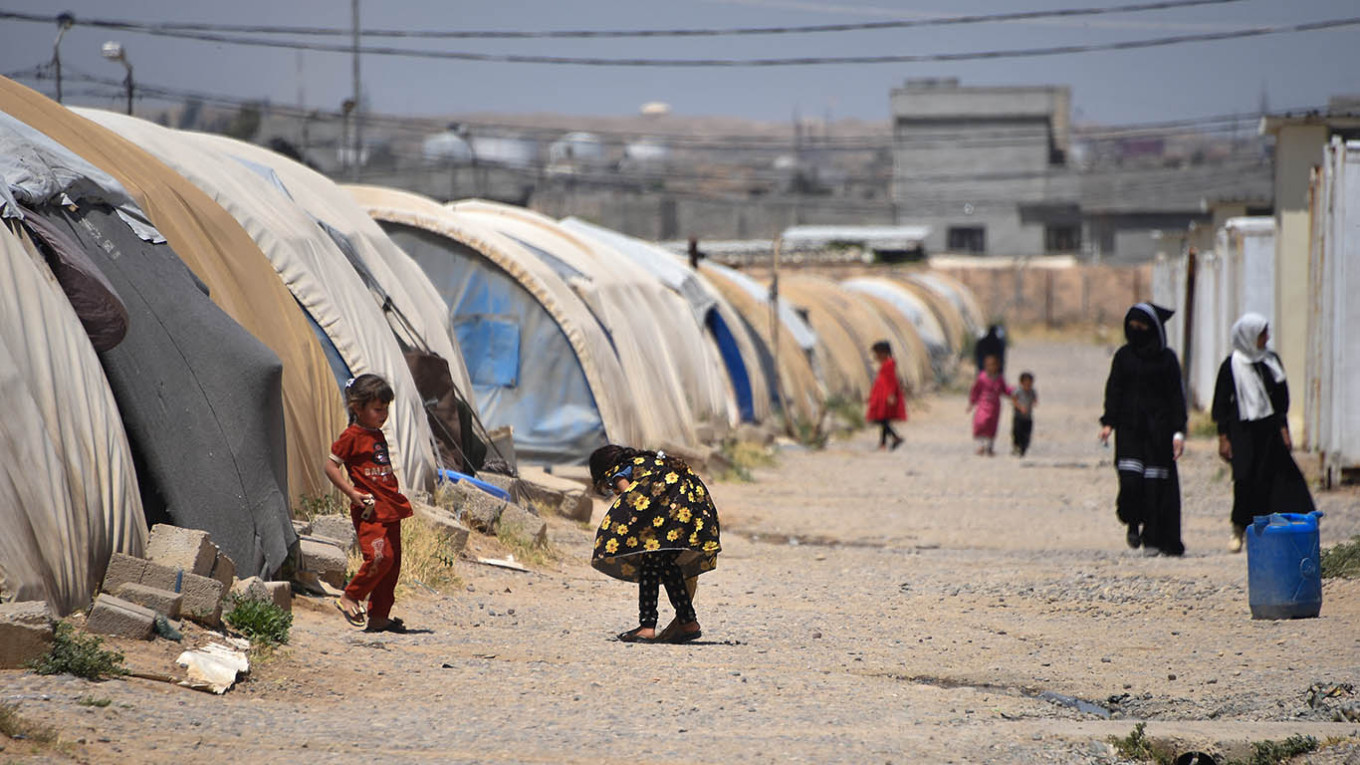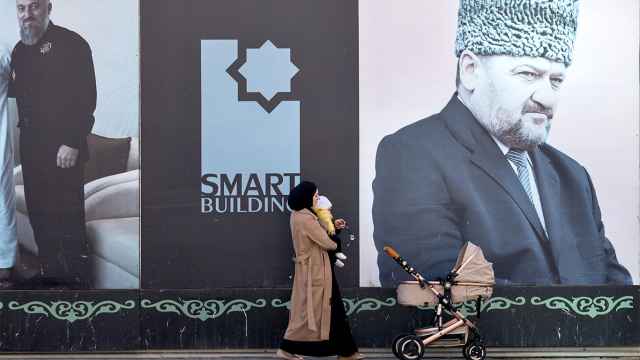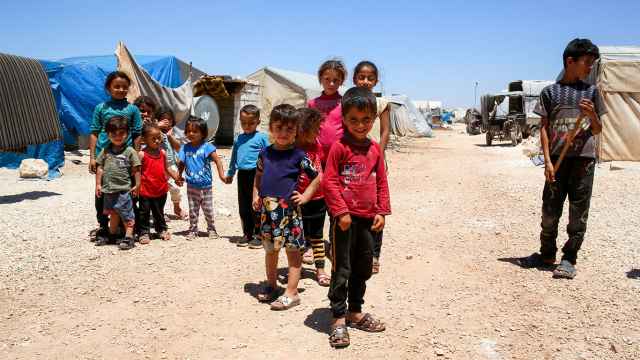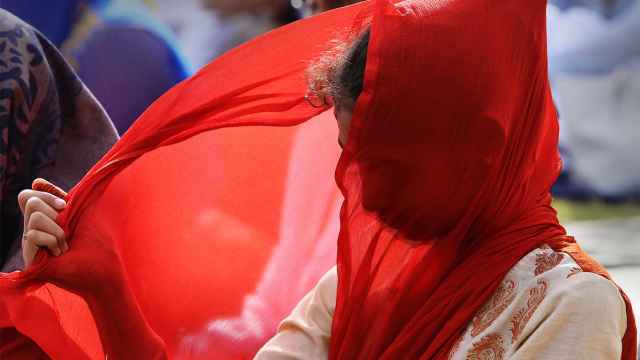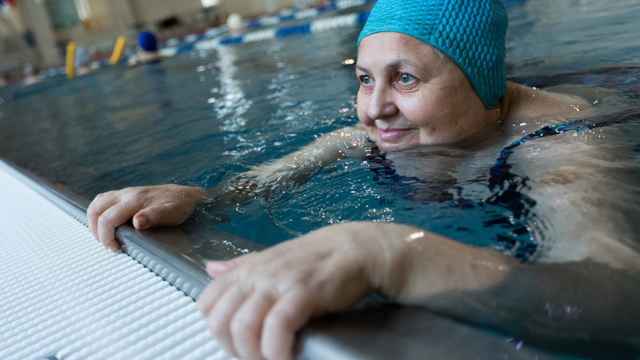“There are 2,000 Dagestani women without children in the Al-Hawl and Roj camps, which are under Kurdish control in Syria,” said L., a Dagestani woman recently rescued from Al-Hawl, a sprawling detention facility in northeastern Syria.
“Many more families with children are also held there. I don’t know the exact number, but our living conditions are absolutely unbearable,” she said, speaking on condition of anonymity for safety reasons.
Located near the Iraqi border, Al-Hawl was initially established to house Iraqi refugees fleeing the Gulf War and, later, the U.S.-led invasion of Iraq. Today, it holds thousands of women and children, many of them relatives of Islamic State fighters, under the control of Kurdish-led forces.
“Women and children are subjected to torture and beatings by the Kurdish authorities,” L. said. “We are being held without any legal protection, in horrific conditions. Some of us don’t just live in tents, but in ‘prison toilets’ — essentially latrines converted into cells. Even healthy people develop heart conditions and contract tuberculosis in those cells.”
L. is one of many women labeled as affiliated with the Islamic State (ISIS), the terrorist organization that seized swathes of territory in Syria and Iraq in 2014 and declared a caliphate. While IS still exists in some form, the self-proclaimed state collapsed in late 2019 after the battle of Baghuz Fawqani.
In the aftermath, wives, sisters and children of ISIS fighters, many of whom are foreign nationals, were sent to Kurdish-controlled camps in northeastern Syria.
There are no precise figures on how many women and children from Russia and its annexed territories are being held in these camps, but many appear to hail from the North Caucasus. Families detained in these camps describe harrowing living conditions and say they feel they have been abandoned by the international community.
Some children have spent their entire lives in detention, either being born in the camps or brought in as infants during the final battles with ISIS. Others were preschoolers at the time and barely remember the group.
“For six years, children aged 12 and older have been taken from Al-Hawl and separated from their mothers, essentially locked in special prisons for teenagers,” L. said. “The conditions they live in are terrible. You can imagine the trauma they’ve endured, being separated from their mothers and siblings. Regardless of a mother’s past, she is still a mother. And children should not be punished for their parents’ mistakes.”
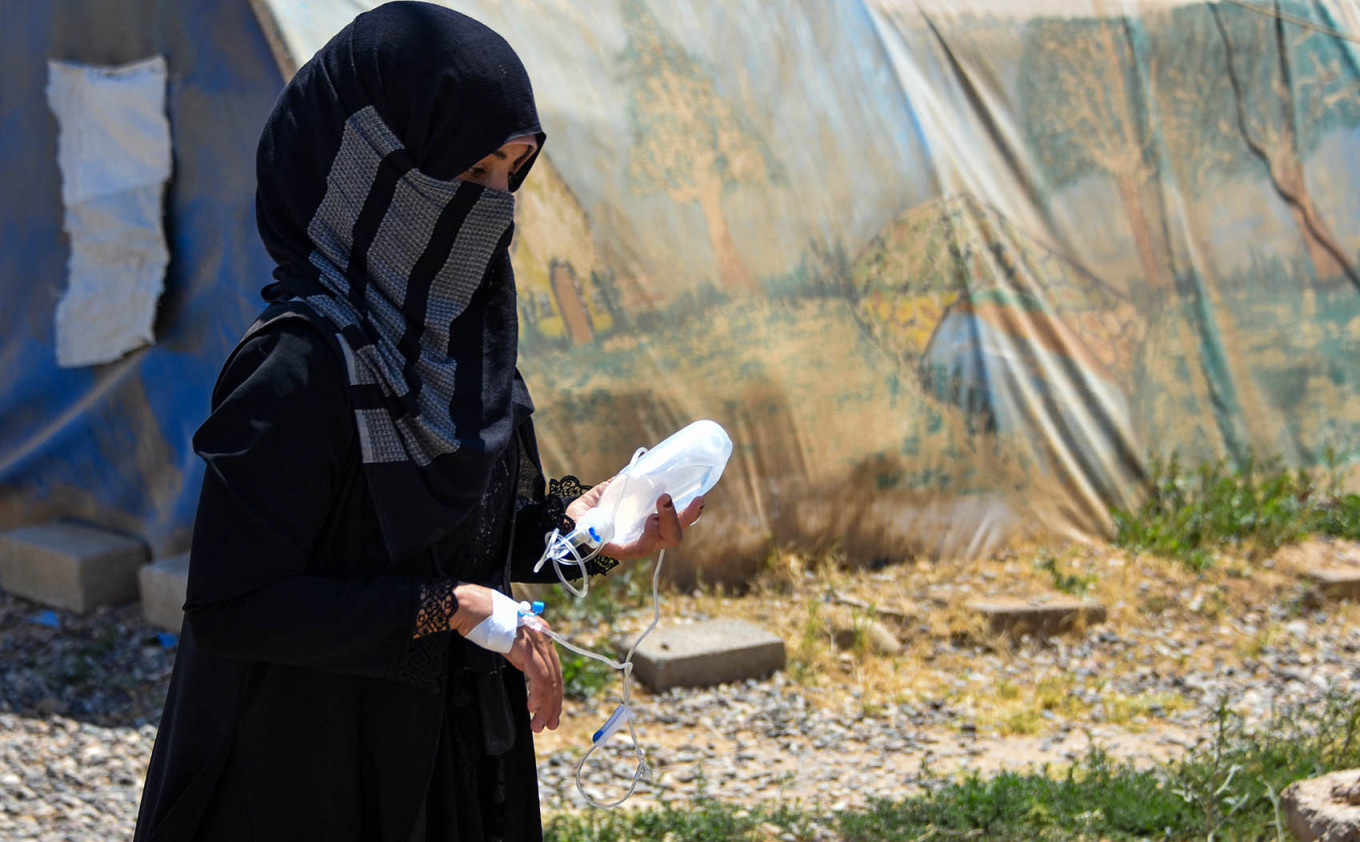
According to L., mothers are often left in the dark about their sons’ whereabouts. Though a handful of children have been returned to families, she described these instances as “manipulative gestures” rather than systemic change.
“In Roj, this particular practice doesn’t exist, but even there, Kurdish authorities are cruel toward children, including toddlers, abusing them physically and emotionally. When the media are nearby, they pretend to be kind. But when the cameras are gone, they show their true faces,” she said.
On social media platforms such as Telegram and Facebook, North Caucasus women routinely organize fundraisers for warm clothing and blankets for their imprisoned sons, or to pay bribes to Kurdish guards in hopes of securing their release.
“The Chechens have practically ransomed all their fellow citizens. There are far fewer Chechen families left in the camps,” said Ansar Dishni, a representative of NIYSO, a Chechen independence organization.
He said his group regularly receives requests for help raising the money needed to free someone.
“There are many groups that pay bribes to get women and children out of the camps — if you’re able to pay,” added Ali Charinskiy, a representative of the Independent Dagestan in Ukraine initiative. “It costs around $15,000 to get someone out. I know, because I personally helped to ransom and free one family from the camp.”
Charinskiy also blamed Russian authorities for funneling disaffected youth toward Syria in the early years of the war.
“Before 2014, the authorities in the North Caucasus were pressuring young Muslims who could resist,” he explained. “The FSB allowed people to leave for Syria, doing nothing to prevent families from joining the anti-Assad resistance or even terrorist groups. Their goal was to get rid of Muslim youth who might engage in Islamic solidarity or the Dagestani liberation movement. And then Russia came to Syria to fight for Assad, and bombed them.”
Dishni echoed that view, attributing youth radicalization to decades of Russian repression.
“The main reason was strict control and persecution by Russian authorities. That’s what drove many young families to leave,” he said.
While Russia had a role in creating the conditions that led to the camps, it has done little in the way of resolving the crisis.
Inside Russia, the plight of ISIS-affiliated women and children is taboo, and even discussing it can lead to criminal charges.
In July 2024, Russian theater director Zhenya Berkovich and playwright Svetlana Petriychuk were sentenced to six years in prison for “justifying terrorism” over their play “Finist, the Brave Falcon,” which tells the story of Russian women lured into joining ISIS fighters in Syria. Though the play clearly condemns ISIS, its subject matter proved too politically charged.
In contrast, British author Nussaibah Younis’ 2025 satirical novel “Fundamentally,” about a London academic trying to rescue a former ISIS bride from a Syrian camp, became a bestseller and was shortlisted for the Women’s Prize for Fiction.
And in 2019, Azadeh Moaveni’s “Guest House for Young Widows,” a nonfiction account of 13 women linked to ISIS, was named one of the year’s best books by The New York Times, The Toronto Star and The Guardian.
Experts agree that early intervention is key for deradicalization. The sooner children are removed from such camps, the better their prospects. But return efforts remain inconsistent.
Though some women and children have been returned to the North Caucasus, the process is slow and complicated.
“We know of only a few isolated cases where women who voluntarily returned from the camps were subjected to criminal prosecution,” said Dishni of NIYSO.
Generally, in Chechnya and other parts of the region, families of former ISIS members face little systematic prosecution, he said. While returnees are screened, these measures rarely escalate into persecution.
However, he warned that “in Russia, where the repressive machine operates outside the law, no one is truly safe.” Even if not officially charged, women returned to Chechnya may face intimidation and harassment, he said.
Charinskiy, from Independent Dagestan in Ukraine, described cases in which Dagestani women deported back to Dagestan were separated from their children and jailed.
“That’s why many women are afraid to return,” he said.
“Whether to return or stay is a deeply personal choice,” said L., the Dagestani woman. “Everyone has their own plans and preferences. But right now, Syria seems like the safer option.”
Still, many women say they want to go home.
“There’s no one-size-fits-all answer,” said Dishni. “Each case is unique. You have to consider broader factors — regional dynamics, international policies and how returnees are treated.”
He added that in some cases, returning teenagers to their extended families in the North Caucasus may offer the most humane and stable path forward.
“The family structure there is based on mutual support. If these kids are surrounded by their loved ones, they might find stability, care and a path to reintegration,” he said.
The political landscape in Syria is also shifting. Since the fall of Bashar al-Assad’s regime, the new Salvation Government led by President Ahmed al-Sharaa has spoken about freeing detainees from Kurdish camps and has reportedly opened negotiations with Kurdish forces — though no concrete progress has been made.
L. said that conditions have worsened under the Kurdish authorities, who are now abdicating responsibility.
“With the arrival of new authorities, we hope for the emergence of more transparent and legal mechanisms for rescuing the women and children trapped in these camps,” Dishni said. “We expect that competent bodies within the new Syrian government will establish channels for their release and ensure their safety.”
“I’m sure the new government is preoccupied with other issues right now, so the women and kids from Roj and Al-Hawl are not their priority. And the Kurds see them as bargaining chips,” Charinskiy said. “It’s a shame, but I hope it will change.”
A Message from The Moscow Times:
Dear readers,
We are facing unprecedented challenges. Russia's Prosecutor General's Office has designated The Moscow Times as an "undesirable" organization, criminalizing our work and putting our staff at risk of prosecution. This follows our earlier unjust labeling as a "foreign agent."
These actions are direct attempts to silence independent journalism in Russia. The authorities claim our work "discredits the decisions of the Russian leadership." We see things differently: we strive to provide accurate, unbiased reporting on Russia.
We, the journalists of The Moscow Times, refuse to be silenced. But to continue our work, we need your help.
Your support, no matter how small, makes a world of difference. If you can, please support us monthly starting from just $2. It's quick to set up, and every contribution makes a significant impact.
By supporting The Moscow Times, you're defending open, independent journalism in the face of repression. Thank you for standing with us.
Remind me later.


